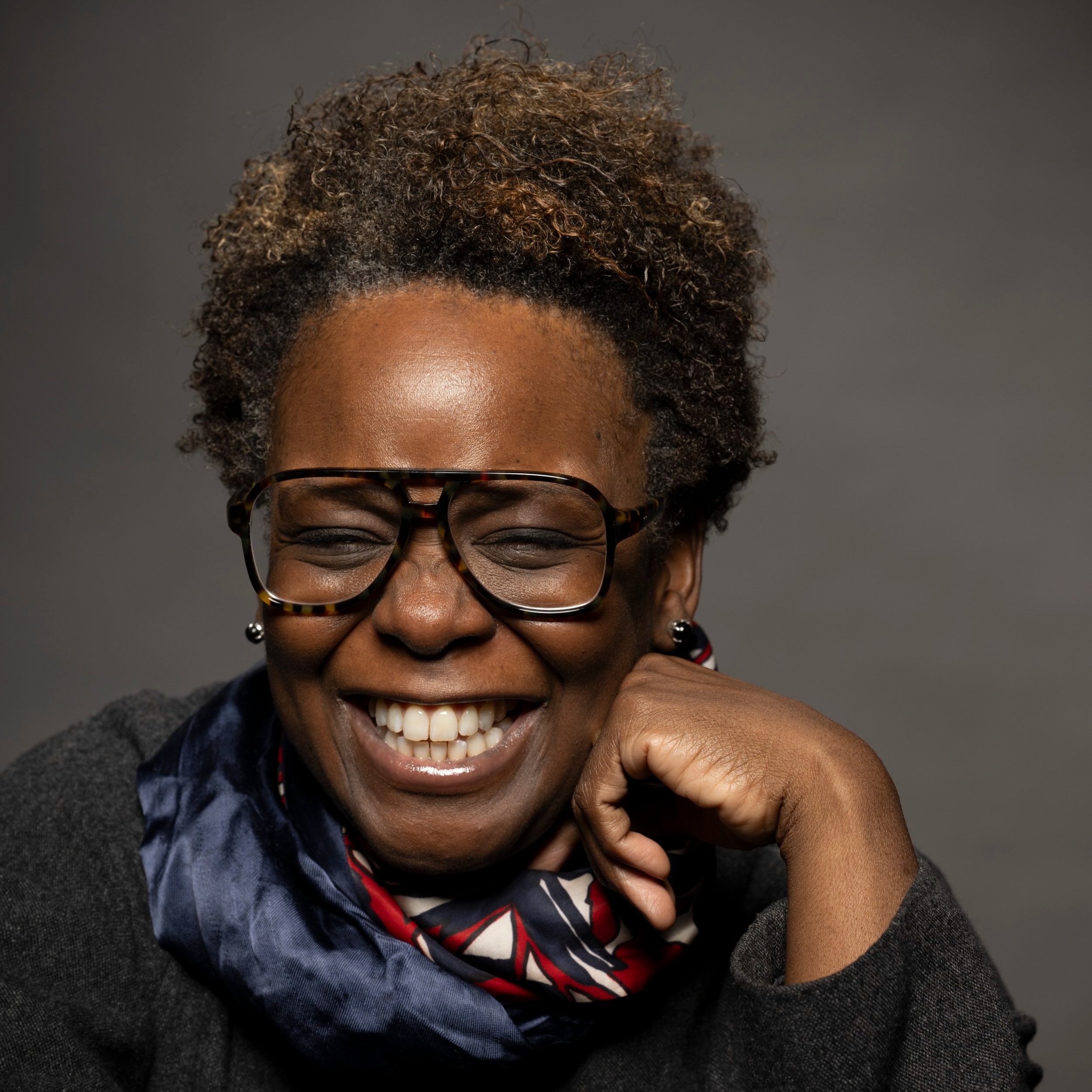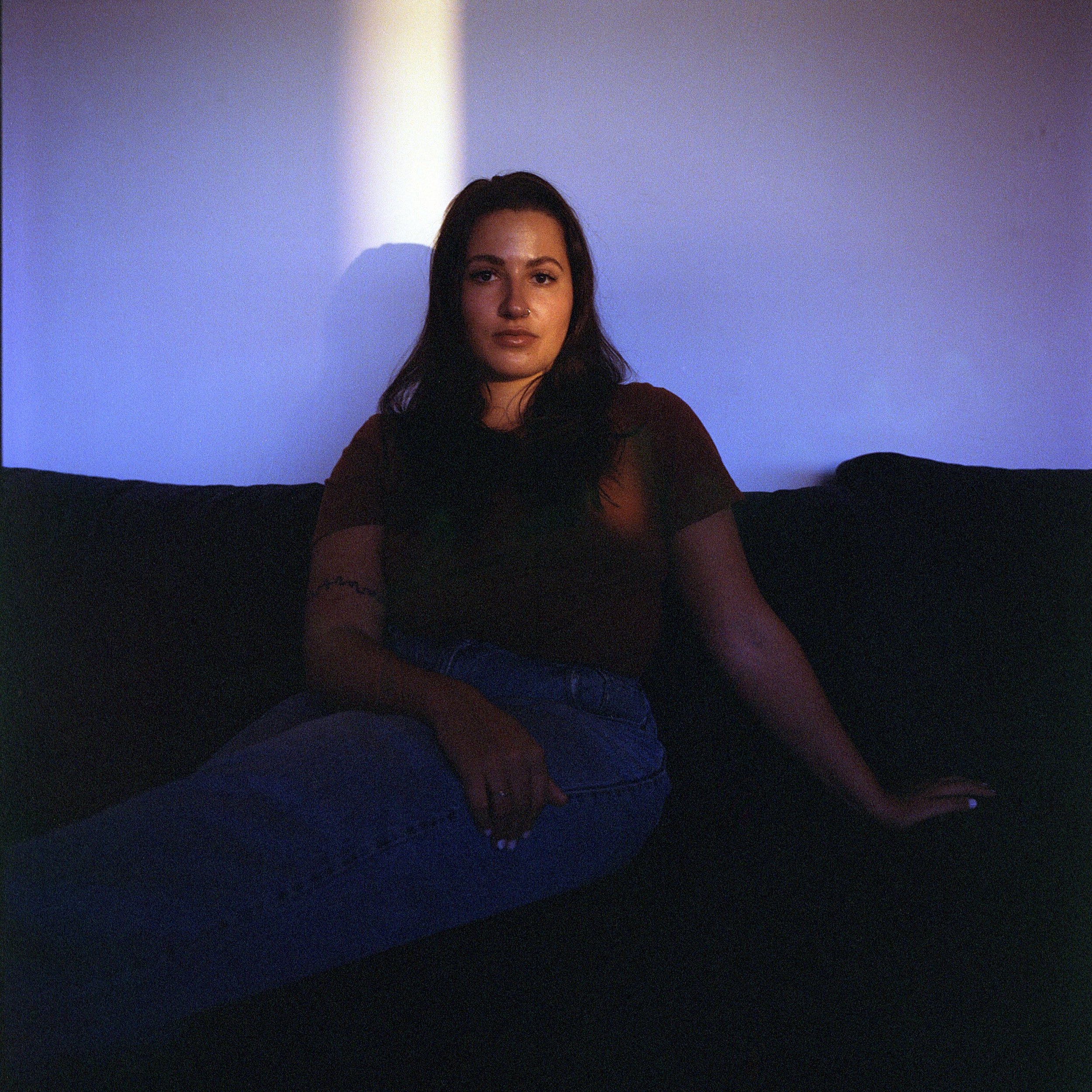The 2024 Women Photograph Grantees
Women Photograph is thrilled to announce the recipients of our 2024 grants: the Women Photograph Project Grants of $5,000 have been awarded to Taiwo Aina, Andrea Hernández Briceño, Natalia Neuhaus, Oksana Parafeniuk, and Viviana Peretti. The Women Photograph + Leica Grant of $10,000 has been awarded to Gabo Caruso. We received over 1,100 applications from women and nonbinary photographers around the world — thank you so much to everyone who sent in proposals! Congratulations to the photographers selected — you can read more about their projects and connect with their work below.
Thank you to this year's grant sponsors, MPB and Leica USA, and to our judges, Alisa Swindell, Amy Yenkin, Bear Guerra, Lexi Parra, and Sandra Stevenson.
Women Photograph
Project Grants
Andrea Hernández Briceño
Venezuela | www.andreahb.com | @andrernandez | she/her
The phone buzzed in the middle of the night. I played my friend’s voice notes: she lost her unborn baby and was on her way to get an abortion. “If this had happened back home, I could have died,” she said. Venezuela is one of the five countries in the region that still prohibits abortion. Months before, she moved to Colombia –among other 3 million migrants in search of a better life. “Hold My Hand” explores how sexual and reproductive rights are an unseen aspect of the biggest displacement crisis in the region.
Oksana Parafeniuk
Ukraine | www.oksanaparafeniuk.com | @oksana_par | she/her
In war, media often tend to highlight heroic male participation while women are more commonly portrayed in the familiar roles of victims, caregivers, or mourning wives and mothers. Reality is much more nuanced. Oksana’s project will focus on telling the stories of Ukrainian women and exploring changes in their roles and lives since Russia's full-scale invasion of Ukraine. Women have joined the military, taken on new jobs, become volunteers, competed as Paralympic athletes, led social movements, adapted to a new life after injury, been killed and left behind families, saved lives working as surgeons, and so much more. There are so many aspects of life in a country at war that can only be understood by proactively incorporating the experiences of women.
Taiwo Aina
Nigeria | www.taiwoaina.com | @taiwoaina_ + @gameofconfidence | she/her
Game of Confidence is a visual project that explores the lives of six female boxers in Lagos. In one of the largest cities in the world, these athletes all have different reasons to pursue this sport: Esther Oni mentioned that she gets into the ring to develop her self-confidence, Olamide wants to be a superstar, Eniola to make extra income, and Damiliola wants to burn calories. Exploring themes like gender equality and women’s empowerment, Taiwo’s goal is to showcase the beauty and importance of this sport, how it’s impacting the individual lives of these women, and show the struggles of what it takes to be a professional boxer in a big city like Lagos.
Natalia Neuhaus
Peru + USA | www.natalianeuhaus.com | @natalia.neuhaus | she/they
In the 1940s, industries in Niagara Falls played an unknown yet crucial role in developing the atomic bomb. It's hard to imagine, but these long-gone factories refined most of the uranium needed for the atomic bomb and the Cold War effort. Evidence of this is everywhere, buried underground—a byproduct of the radioactive process piled up unsupervised in factories in the area. Unaware of the dangers, workers at these factories brought this material home and used it as filler for home improvements. Since it was free, readily available, and abundant in the area, construction, and trucking companies began commercializing it and spreading it throughout the region, transforming a once idyllic city into a radioactive minefield. It's no accident that cancer rates in this area of western New York have remained disturbingly high for the past 40 years and are the highest in the U.S. My journey into this project began with a distressing conversation with a close friend, a fourth-generation former resident of Niagara Falls. The medical history of her family stands as a living testament to the trials countless other families in Niagara Falls have had to face, punctuated by numerous instances of cancers and endocrine diseases as the result of the constant exposure to this radioactive waste.
Viviana Peretti
Italy | www.vivianaperetti.com | @vivianaperetti + @vivianaperetti_analogue | she/her
Searching for Lost Lives is a decade-long project about forced disappearance in Colombia. Over the past 60 years, more than 111,000 people have been forcibly disappeared in the country. Impunity is the essence of forced disappearance. There is neither a body nor a motive and, thus, no culprit. It is a silent, almost invisible crime, far from the bloody visual imagery of any armed conflict. Most of the disappeared have been thrown into anonymous mass graves, rivers, mangroves, sugar mills, and crematorium ovens. Forced disappearance in Colombia, much more prevalent than in the dictatorships of Chile and Argentina, is used as a potent social control tactic. It is a hidden outcome of a complex low-intensity war over territorial control, illicit crops, and economic megaprojects. The goal is to eradicate political opposition, and the crime itself, carried out by state agents, members of paramilitary and guerrilla groups, politicians, and civilians benefiting from the strategy. The purpose of the project is twofold: to honor the thousands of disappearance victims and their families, and to raise national and international awareness about the tragedy of forced disappearance in Colombia.
Women Photograph + Leica Grant
Gabo Caruso
Argentina + Spain | www.gabocaruso.com | @gabocarusophoto | she/her
Cora was 5 years old when she began her gender transition, becoming the youngest trans person in Spain. This revolutionized every space of her life and showed that gender transition is a community process, not just an individual one. Since 2018 we have been working together on this collaborative project “Cora" which bears her name and documents her story and her growth through the years, as well as the challenges.
Cora is now 13, and in a stage of profound physical, emotional, sexual, and social transformation, while Spain advances LGTBIQ+ rights and even recently granted trans minors additional autonomy. The relationship between photography and trans community has evolved from a tool of stigmatization to a means of affirmation, visibility and positive storytelling. This project wants to demonstrate that it is possible to be a trans minor and grow up happily in a safe and respectful environment. "When I grow up I want to be a computer scientist or a unicorn maker.” - Cora (2016).
Finalists
We are also happy to congratulate these seven photographers who were named as finalists:
Kael Alford | USA | www.kaelalford.com | @kaelalford
Katie Basile | USA | www.katiebasile.com | @katiebasilephoto
Maud Delaflotte | France | www.mdelaflotte.com | @maud.delaflotte
Ksenia Ivanova | Germany + Russia | www.kseniaivanova.com | @kseniaivanovacom
Atefe Moeini | Iran | @atefemoein
Norkor Nortey | Ghana | www.norkornortey.com | @norkor.nortey
Lynsey Weatherspoon | USA | www.lynseyweatherspoon.com | @lnweatherspoon
Notes from the Judges:
“All of the judges were drawn to Gabo Caruso’s project, Cora. The work feels exceptional not only for the importance and timeliness of the subject matter but for the long-term commitment to respectfully documenting this young girl’s life. The photographs project a collaboration with Cora to present a childhood that is joyous, unique, and nuanced. The story not only traces Cora’s journey but documents how Spain’s new laws protecting transgender people will impact her, and through implication other trans kids, as she moves into adolescence.”
“Oksana’s dedication to staying and documenting her country as the war continues in Ukraine is evident in her images. Her work is dynamic: including soft, quieter moments along with the difficult but necessary documentation that show the consequences of war. Oksana is showing us contrasting moments that build a more complex understanding of life and resilience in Ukraine today. Her work is exemplary of documentary photography’s importance: staying beyond the headlines to bear witness for the world. It is an honor to be able to support her work.”
“Natalia’s emotive work stood out to the entire jury, with their intentional color palette and eery undertone speaking to the story’s core. Their work struck an emotional chord, bringing a sense of urgency to a rarely discussed topic. Natalia’s focus on the community of Niagara Falls and the effects of radiation exposure is an important document bringing visibility to ever more needed discussions of public health, environmental crisis, and the communities hit hardest who cannot be forgotten.”
“With Game of Confidence Taiwo Aina documents a group of women boxers in Lagos, the photographs centering their athleticism without capitulating to overemphasizing their femininity. The portraits focus on empowerment and sacrifice to the sport. The judges noted how the story contributes to new visions of African women that differ in a positive direction from overdone tropes on Black women’s struggles.”
“Andrea Hernández Briceño covers two urgent and timely issues – access to abortion and the economic crisis in Venezuela driving migration. She weaves stories together in a creative and visually effective way to show how the issues of religion, economic insecurity, healthcare, abortion, and migration are all interrelated. Andrea homes in on the drivers behind the feminization of migration, which the jury was struck by, as well as her ability to visually depict abortion restrictions – no easy feat but done quite well and to great effect.”
“One of the first things I look for as a juror is whether a photographer’s work helps me make an emotional connection to the subject matter at hand. Viviana’s project about the legacy of forced disappearances in Colombia does just that, powerfully conveying the toll that this longtime conflict continues to have on Colombian families and society at large - despite the fact that there was a peace agreement several years ago. We were all impressed by her ongoing committment to this story and are happy to support her as she continues to document the slow process of a country trying to heal.”
WOMEN PHOTOGRAPH GRANT JUDGES
ALISA SWINDELL,
HOOD MUSEUM OF ART
AMY YENKIN,
INDEPENDENT PRODUCER
BEAR GUERRA,
HIGH COUNTRY NEWS
SANDRA STEVENSON,
THE WASHINGTON POST
LEXI PARRA,
WOMEN PHOTOGRAPH


























